
Guests
- Victoria RoseBritish senior plastic and reconstructive surgeon with the National Health Service who treated patients injured in an attack near an aid distribution center in Rafah, Gaza.
Health officials and witnesses in Gaza say at least 31 people were killed Sunday when Israeli forces opened fire on crowds headed to an Israeli-controlled aid distribution point near Rafah. Over 170 people were wounded. Israel denied responsibility. Dr. Victoria Rose, a volunteer surgeon in Gaza who treated some of the massacre’s survivors, decries the ongoing violence of the Israeli military upon the besieged territory’s civilian population. “There are hundreds and thousands of children needlessly dying, children being blown up, children being starved and children dying of otherwise preventable illnesses … it’s a mass destruction of an entire population, and we can’t stand by and let this happen any longer.”
Transcript
AMY GOODMAN: This is Democracy Now!, democracynow.org. I’m Amy Goodman.
Health officials and witnesses in Gaza say at least 31 people were killed Sunday when Israeli forces opened fire on crowds headed to an Israeli-controlled aid distribution point near Rafah. Over 170 people were wounded. Israel has denied responsibility. This is a Palestinian woman named Asmaa Abu Salah speaking in a hospital room next to her brother-in-law, who had been shot while trying to get aid.
ASMAA ABU SALAH: [translated] You can see his condition. He’s between life and death. He went for food and drinks for his children. His children need food. They say, “We want food, Dad.” This is the most difficult word. As you can see, here he is.
AMY GOODMAN: The attack came a day after the U.N. humanitarian agency described Gaza as “the hungriest place on Earth” and accused Israel of, quote, “drip feeding food into an area on the verge of catastrophic hunger,” unquote.
We’re joined in Gaza now by two guests. We begin with Dr. Victoria Rose, a British senior plastic and reconstructive surgeon with the National Health Service in Britain, who’s volunteered in three medical missions to Gaza since October 7, 2023. She’s joining us now from Nasser Hospital in Khan Younis, where she’s been treating patients injured in the attack near that aid distribution center in Rafah.
Dr. Rose, thank you for joining us again. Can you explain what the injuries were, who you saw that came out of that attack, as people were told by quadcopters to go to the Gaza Humanitarian Foundation to get aid?
DR. VICTORIA ROSE: So, it apparently started very early in the morning, because we woke up to it. What had happened is the center doesn’t open until — I think it’s 7:00 or 8:00, and a lot of the Palestinians had tried to get there as early as they could to get to the front of the queue, so that the crowds were gathering at about 2 a.m. There was apparently shooting of the crowds, as they were unable to control them. And then we started to receive the casualties here at Nasser from about 9:00 ’til about 12:00. We received 28 people who were dead, and then a further five died in the emergency department. And then we had 200 people with gunshot wounds, mainly to their abdomen and upper body, but we are still today working through some of the lower limb injuries from gunshot wounds.
We’re not actually that near this GHF aid distribution center. It’s at Rafah. And we know that the ICRC and MSF Belgium field hospitals are closer than Nasser, and they did take a lot of the casualties, as well. In fact, we’re still very much on the edge of the red zone, so to get to us from al-Mawasi is quite an undertaking. So, the people that did make it to us sort of risked their lives to get to us as it is.
AMY GOODMAN: And can you talk about how the food crisis, the level of hunger in starvation in Gaza is making it harder for the wounded to heal, or the condition of the people, even those that are shot?
DR. VICTORIA ROSE: Yes. So, malnutrition takes on very quickly. You notice it immediately with muscle wasting and fat reserve loss. In the children we’re seeing, they’re much smaller than their Western counterparts. But wound healing is an essential — it requires essential nutrients and vitamins. So, if you’re not getting those in your diet, your cell turnover slows, and you can’t actually heal. And we’re definitely seeing that, particularly in the children.
Some of the wounds we see are quite dirty. They’ve been inflicted by bomb injuries. They’re often being bombed in their tents. Obviously, there’s no good sanitation here, and the [inaudible] is contaminated. So they’re dirty wounds to start with. And what we’re finding is we’re trying to clean them. We’re doing what we would call a debridement, which is removing all the unhealthy tissue, and we’re washing them. And infection is setting in almost immediately. And that is another issue of malnutrition, in that your immune system is immediately depressed, and you do not have the power to fight off simple infections, that coupled with the fact that we are out of medication here. We only have three types of antibiotic left. We have — 47% of our essential drug list here at Nasser is completely out of stock. So we don’t actually have the medicines we need to treat these infections, and the population don’t have the reserves they need to fight these infections.
AMY GOODMAN: Can you talk about, since you’ve been on three missions there since October 2023, how difficult is it to get into Gaza to do this lifesaving work?
DR. VICTORIA ROSE: It’s virtually impossible at the moment. Since the Rafah border closed in May of last year, all entry and exit into Gaza is controlled by COGAT. They’re the coordination of activities in the Occupied Palestinian Territories. They’re a branch of, essentially, the IDF. And they denote who to can come in and who can leave. They’ve set out a huge number of regulations about traveling into Gaza. And as it stands now, you are only allowed in if you stay for a minimum of one month. You are only allowed to bring one suitcase with you that weighs 23 kilograms. You have to have your own evacuation plan, which means that you have to have a safe house in Gaza, and you have to have a driver 24 hours a day at your disposal. You also have to have your own satellite phone, Garmin. And right now you have to bring all of your own food for the month that you’re in and all your own water for three days. So, it’s really quite difficult to get in.
There used to be 25 seats on the bus, and the bus would come in on a Tuesday and then come in on a Thursday, and the exit would be the same day. What we’ve seen since the ceasefire broke down is the constant canceling of the convoys and denial of entry. So, when you apply for a seat on the convoy, you’re given access or approval by the WHO and the United Nations two weeks before the convoy leaves, and then COGAT get the final say the night before you go. So, we will fly to Amman. We know that the WHO and the United Nations have placed us in hospitals in Gaza and are aware of what they’re doing. And then, at some point the night before we’re about to get on the bus, we are given an approval or a denial. Our entire team from IDEALS charity was denied entry in February with no explanation. But luckily, when we came back in May, we split into smaller groups, and we’ve managed to get in this time.
AMY GOODMAN: I wanted to finally ask you about the MSF report that came out yesterday, Médecins Sans Frontières, Doctors Without Borders, the humanitarian aid site, when the people were told by quadcopters, “Go get food at the Gaza Humanitarian Foundation in Rafah,” and then, as they moved in, they were shot. It quotes 24-year-old Mohammad Daghmeh saying, “I was shot at 3:10 a.m. As we were trapped, I bled constantly until 5 a.m. There were many other men with me. One of them tried to get me out. He was shot in the head and died on my chest. We had gone there for nothing but food — just to survive, like everyone else.” How typical is this, Dr. Victoria Rose?
DR. VICTORIA ROSE: That’s the same story that I’ve heard from two patients that I’ve treated today, that they were just going to get food and that they were shot at as they were trying to get away. It’s exactly the same story.
AMY GOODMAN: What would change the situation on the ground? You’ve come from Britain. The prime minister of Britain, Starmer, Canada, France, they have said they’re talking about some kind of embargo on Israel, but that hasn’t happened.
DR. VICTORIA ROSE: I think we need it now. I think what’s going on here is a humanitarian crisis. There are hundreds and thousands of children needlessly dying, children being blown up, children being starved and children dying of otherwise preventable illnesses if this war wasn’t going on. This is not a targeting of a terrorist organization. It’s a mass destruction of an entire population, and we can’t stand by and let this happen any longer. It’s unimaginable to think how much worse this is going to get if we don’t do something now.
AMY GOODMAN: Dr. Victoria Rose, thank you for being with us, British surgeon at Nasser Hospital in Khan Younis in Gaza.

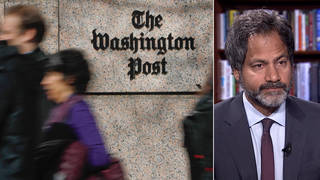
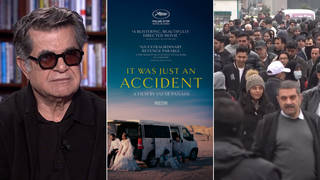
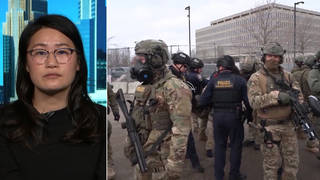
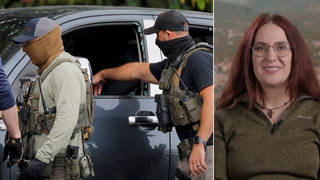

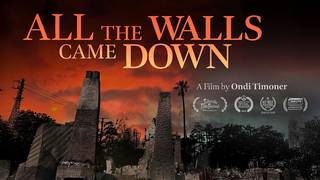
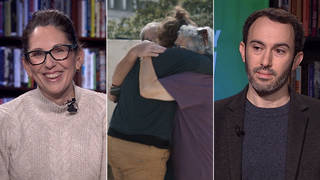




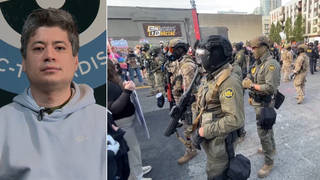
Media Options